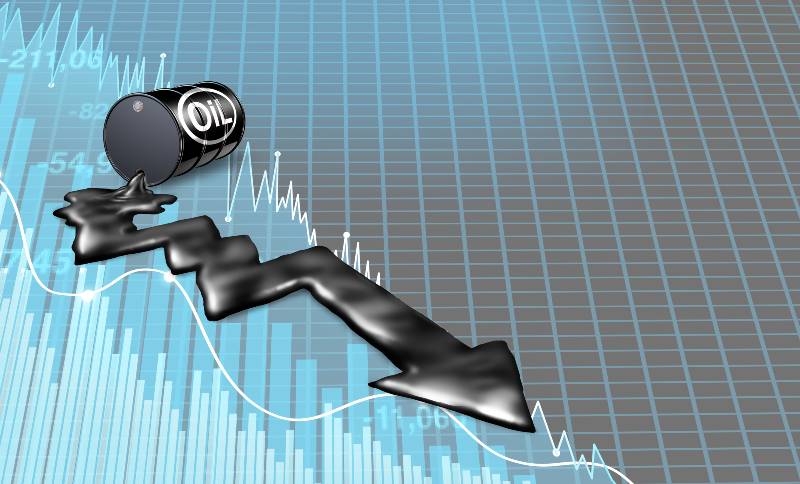Breaking News
Spiraling Oil Prices Can Lead to Global Economic Destruction
Spiraling oil prices can ultimately lead the world into economic destruction. This is according to oil analyst Paul Sankey of Sankey Research. The Russia-Ukraine crisis is the primary mover of oil prices.
By definition, economic destruction is a breakdown of an area’s economy that results from a crisis. It occurs after a severe economic contraction or recession. Economic destruction can last any number of years depending on how severe the damage is.
RELATED: Crude Oil Prices Are Heading Towards $100 Per Barrel
Economic Destruction Due To Rising Oil Prices

Sankey warned that the world’s path is heading toward economic destruction. “I’m concerned that we don’t have enough oil at all here,” he said. “We need to go to $120 to $150 [per barrel], and then we get into economic destruction,” he added.
Want to see the full article?
Click here to read the full article on thecapitalist.com
Sankey sees oil trading between $100 to $150 per barrel until the crisis in Ukraine resolves. Currently, Brent crude futures briefly climbed to $119 before settling down to $116.59 per barrel.
Meanwhile, West Texas Intermediate crude hit $114.21 per barrel. At the same time, oil cargoes from Russia “simply aren’t moving” following the invasion. “There’s a major, physical, immediate outage that caught an already tight market with very low inventories,” he said.
Recession to Hit Countries, Economies To Slow Down
Stankey said that people are worrying that rising oil prices will lead to a recession. The crisis will also destroy oil demand and slow down many economies.
Surprisingly, the decision by the Organization of Petroleum Exporting Countries (OPEC) to stand down might be the right call.
Over the past few weeks, OPEC continues to resist calls to increase production as oil prices hit record highs.
“The scale of the emergency here is so severe that you probably don’t want to be doing what the Western governments are doing,” Stankey said.
If OPEC releases emergency stocks, it leaves them with even lower inventories. For example, if Saudi Arabia and the UAE run down their spare capacity, nobody knows what happens next.
Meanwhile, Sankey said “any risky supply source might go missing,” as he pointed to Libya and Iraq. Oil prices could then surge to $200 per barrel. He said that OPEC+ is probably watching to see how this plays out.
‘Enormous Mistake’
However, not everyone agrees with Sankey’s assessment. David Goldwyn is president of Goldwyn Global Strategies, an international energy advisory consultancy.
He said that it’s “an enormous mistake” for Saudi Arabia and the UAE to not pump more oil. He said that by not doing so, the two countries are punishing Asia, their future primary market.
“They’re putting themselves on the wrong side of history, making themselves an unreliable supplier and reminding the world why we wanted to get off Middle East oil in the first place,” he said.
Watch the CNBC Television’s full interview with Paul Sankey on oil markets:
Do you agree that OPEC did the right thing by waiting to see how the Ukraine-Russia crisis plays out before making any moves? Or, do you think that is actually making things worse by allowing oil prices to spiral out of control?
Tell us what you think about the uncontrollable rise in oil prices. Share your thoughts in the comments section below.
You Might Also Like:
- Biden’s State of the Union TV Ratings Lowest in 30 Years
- Russian Troops Sets Ukrainian Nuclear Power Plant On Fire
- Biden Ignored Tesla But Praised Ford and GM’s EV Projects
Keep up to date with the breaking news by following us on Facebook and Instagram.